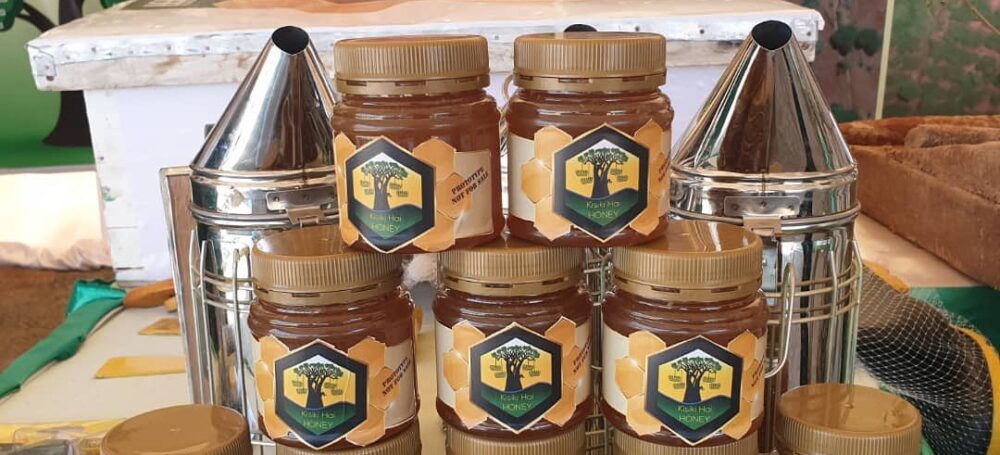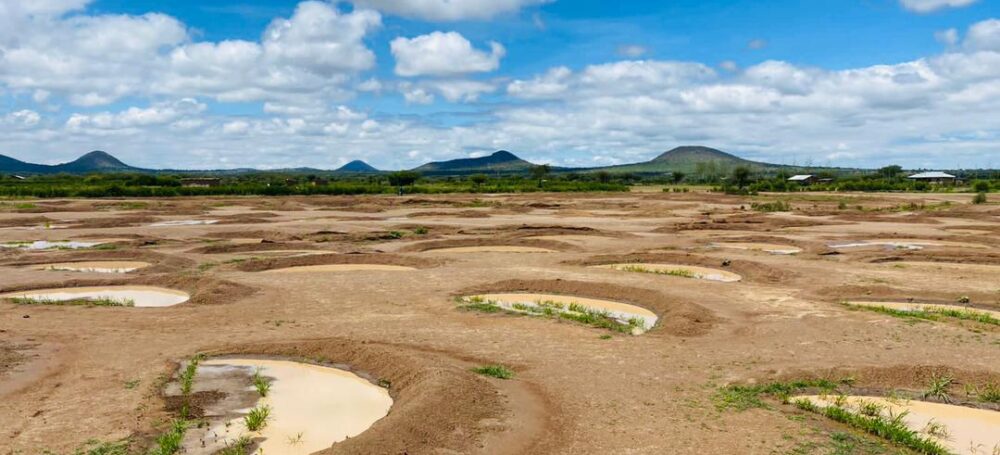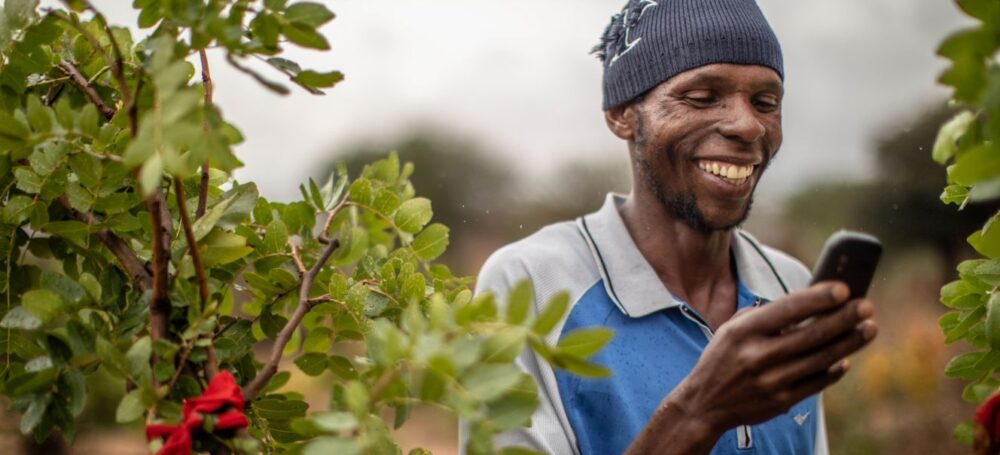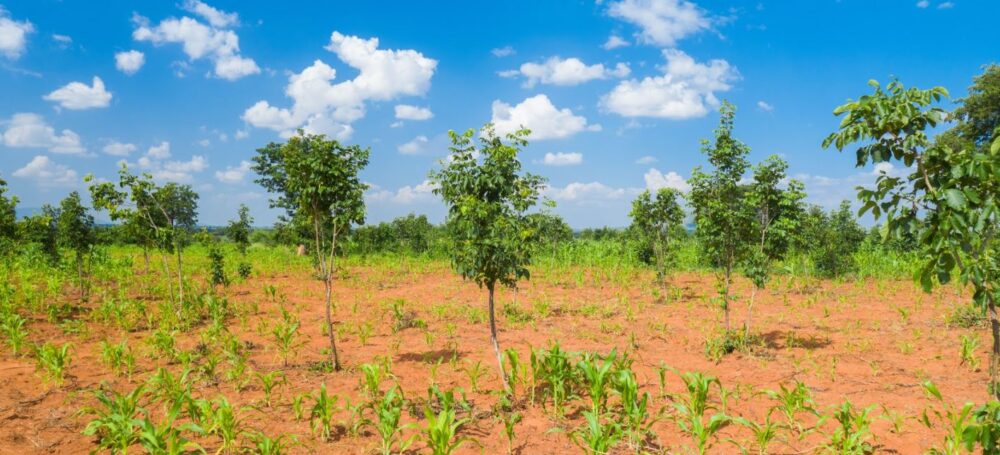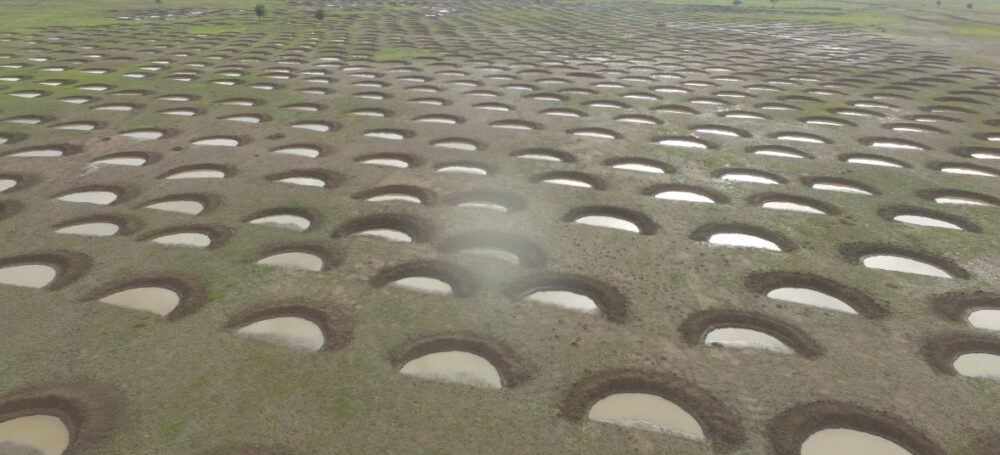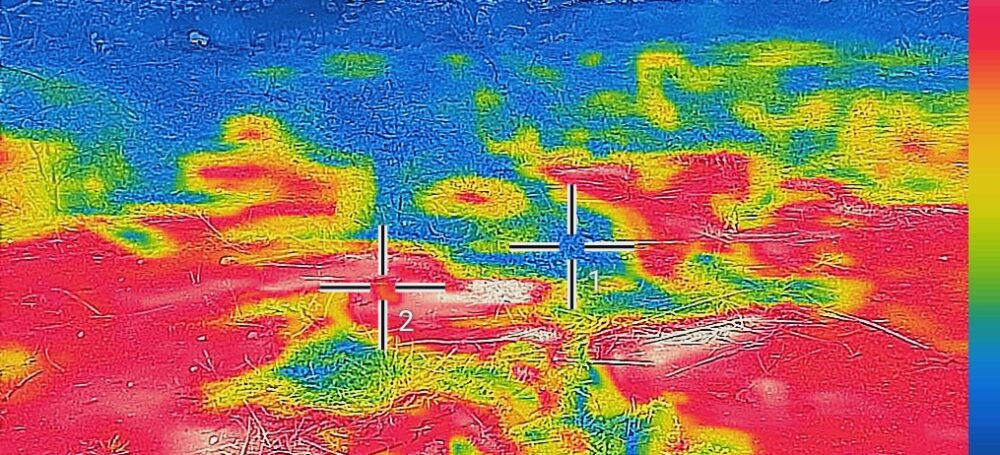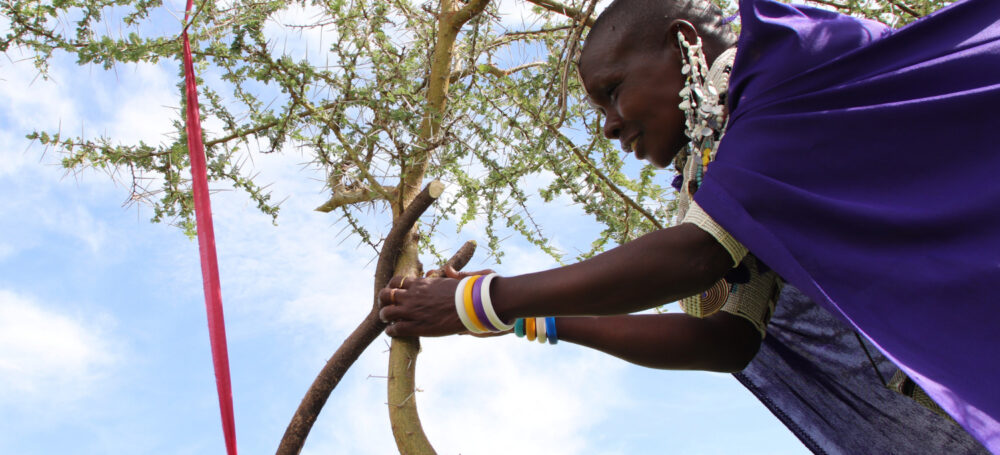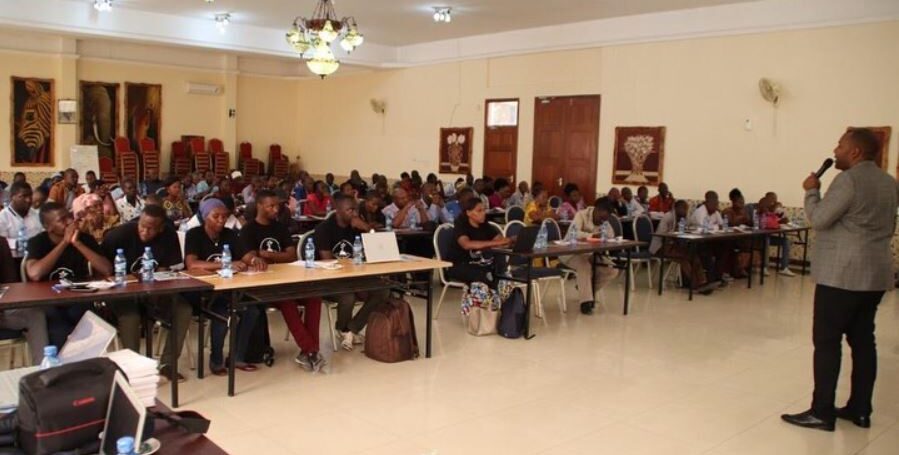In 2019 we started The Kiboriani Mountain range Reforestation and Beekeeping Project aiming at improving people’s livelihoods and climate change resilience through restoration of farm and pastoral land, and scaling up forest friendly economic activities, in particular beekeeping which would encourage conserving Kiboriani forests.
We distributed over 300 beehives to best performing farmers in Kisiki Hai. Two years later, we are happy to see that our vision is been fulfilled, farmers have started to harvest honey from the beehives, this plays
An update on our PMNR project in Monduli, the first vegetation has broken through after a change in the landscape! The half moon bunds and the rains have caused the change. The lost jungle is about to resurrect 🌿
Three months ago we dug 5,000 bunds in Monduli district Arusha.These water bunds help to harvest rainwater which will allow pastoralists in monduli inhabiting the most degraded landscapes to restore their pastures lands and farm soils. This will have a positive effect
To spread the word about regreening among farmers and pastoralists, together with Justdiggit ,KAIOS and Tigo we started a pilot to test the success of regreening via a Regreen App that works on a smart feature phone. Our new Regreen App now provides 300 farmers with knowledge on Kisiki Hai regreening technique and supports them in applying this technique through tutorials, radio programs, success stories and dramas.
With affordable KaiOS enabled devices we are able to connect farmers in rural Dodoma Tanzania
Can you spot the huge number of young Kisiki Hai trees? In few years to come these young trees will grow into a forest. Well about 3 years ago we started training farmers in Dodoma, Tanzania how to restore trees through Kisiki Hai / FMNR so that they can restore their tree cover, which leads to improved soil fertility, more crops, better animal fodder, increased firewood availability, more income and ultimately, a better quality life. We are so happy to see
We have dug 5,000 water bunds in Monduli, Arusha. These water bunds help to harvest rainwater which will allow pastoralists in monduli inhabiting the most degraded landscapes to restore their pastures lands and farm soils. This will have a positive effect on water availability, soil health, crop yields and most importantly grass and fodder for livestock.
Trees and grasses are the natural cooling agents of surrounding temperatures. This heatmap shows the result young Kisiki Hai trees from our Regreening Dodoma program, Tanzania
Trees can have a considerable effect on climate. There are several ways in which a tree can cool down the temperature of the earth’s atmosphere
Through the process of photosynthesis, plants use energy from the sun to draw down carbon dioxide from the atmosphere and then use it to create the carbohydrates they need to
A robust ‘Training of Trainers’ (ToT) program, has been conducted to capable candidates who were selected from each targeted village to become regreening champions and trainers in their respective villages. The Training of Trainers trainings has been conducted to 100 regreening champions, 50 from each village, who were selected amongst the villagers based on the project requirements and criteria.
The participants have been trained on the regreening techniques and are required to train the techniques to their fellow farmers and pastoralists.
Our first advocacy meeting in Monduli district, Arusha to seek all-stakeholder support (government, religious, public, private), and introducing our Pastoralist Managed Natural Regeneration (PMNR) project with Justdiggit and Erbacher Foundation.
Later these meetings will be conducted for the purpose of discussing the progress of the project, sharing grassroots experiences on achievements and challenges observed during the previous year, addressing challenges, setting the way forward and developing sustainability strategies of the project.
Together with Justdiggit and Erbacher Foundation we are happy to start a Pastoralist Managed Natural Regeneration (PMNR) project in Monduli, Arusha, Tanzania.
The Pastoralist Managed Natural Regeneration (PMNR) project aims at improving peoples’ livelihoods and climate change resilience in Monduli district, Arusha, Tanzania. The project will use Rainwater Harvesting (RWH) and Pastoralist Managed Natural Regeneration (FMNR) methods to restore the degraded rangelands in the area. These methods are fast, low cost and sustainable and will allow pastoralists inhabiting the most degraded
Great way to end the week, we have conducted a stakeholder workshop to agricultural officers from Dodoma region. Happy to see that these enthusiastic agricultural extension officers are ready to join forces with champion farmers and village leaders to play a big role in sustaining the program in the villages after the re-greening program by us and Justdiggit is phased out. The main agendas of the meeting were discussions on the progress of the program, sharing experiences on achievements and challenges

